
Summer Fiction Book Club
Revealing present realities and imagining possible futures
Occurred on June 29, July 20 & August 24, 2023
The BTS Center was excited to announce its first Summer Fiction Book Club! During June, July, and August, we immersed ourselves in the creative world of fiction books while daring to explore challenging topics related to climate change. Each month, participants read a selected book on their own time, and then we gathered virtually to discuss as a group. In addition to small group discussion, a guest conversation partner offered their thoughts on the book and shared about its impact in their life.
- On Thursday, June 29: People of the Whale by Chickasaw poet and Pulitzer Finalist Linda Hogan, with guest conversationalist Ryan Darr
- On Thursday, July 20: How Beautiful We Were by New York Times bestseller and award-winning author Imbolo Mbue, with guest conversationalist Maya Williams
- On Thursday, August 24: The Ministry for the Future by New York Times bestseller and award-winning author Kim Stanley Robinson, with guest conversationalist Derrick Weston
Why summer?
Let’s face it: summer is changing. Gone are the sunny Goldilocks days when everything was just right and any imposing threats, like the tale’s three bears, did no actual harm. Today, the realities of climate change and ecological injustice mean that things are not right and that dangers present real-life consequences. No longer a time of carefree leisure, summer is now the season of wildfires and orange smoky skies, drought and heat waves, floods and extreme weather events, melting ice caps, and more. Summer, therefore, is a dynamic reminder of the effects of climate change.
Why fiction?
Simply put, fiction has the potential to reveal present realities and imagine possible futures. Through truth-telling, a good story confronts the current systems of power, the unequal material conditions, or the overwhelming circumstances that prevent all life from flourishing. It gives voice to whomever or whatever has been silenced, forgotten, or ignored — the lives of marginalized humans and exploited nonhumans, the values or perspectives that advocate for collective good, or the complex emotions that humans may experience during planetary polycrisis. Fiction can also be a window through which we envision compelling and creative possibilities, whether social, ecological, political, or economic. Imagining what worlds are possible creates the opportunity for us to build towards a better and more just future.
Why a book club?
Reading fiction together is a dynamic way for humans to make sense of the world(s) in which we live. By coming together to discuss these books, we also collectively share the weightiness of the subjects. Readers may find the book club to be a space where they can encounter fictional worlds, exercise their imaginative capacities, and even explore and experience their own emotions through the narrative lens of fiction. The Summer Fiction Book Club’s collective format encourages everybody to reconnect with themselves, with community, with earth, and with the divine.
Why you?
In response to the cries of the earth and the cries of the poor, the task for spiritual leaders today is to press deeper into the power and potential of storytelling. Storytelling is meaning-making — the way we make sense of life, truth, and beauty. There is no greater witness to the depth and diversity of such narrative power than the sacred texts and oral traditions of religions, spiritualities, and indigenous traditions across the world. They attempt to say something about realities beyond the grasp of human language: the divine or sacred, love and community, life and death, morality and justice, and so on. Many sacred texts and oral traditions teach us that, when faced with enormous obstacles, the pathways toward healing and transformation begin by stepping into a story that is larger than our circumstances. Guiding our communities through climate change is no different. We hope that the Summer Fiction Book Club will be a valuable exercise of your moral and ecological capacities for spiritual care in a climate-changed world.
We welcomed you to join us from June through August as we explored spellbinding stories and discussed their voices, visions, and themes.
Meet our Host
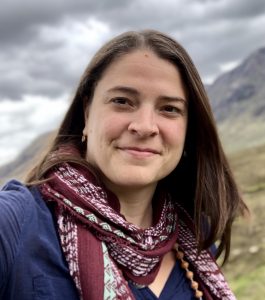 Rev. Nicole Diroff
Rev. Nicole Diroff
Rev. Nicole Diroff is ordained in the United Church of Christ and serves as Program Director at The BTS Center, where she coordinates the planning, implementation, and evaluation of the Center’s programmatic offerings. She holds expertise in facilitation, data management, and strategic planning. Nicole serves on the United Church of Christ Council for Climate Justice and is a Maine Master Naturalist. She lives with her family in Scarborough, Maine.
Prior to her work with The BTS Center, Nicole served as the Associate Director at Interfaith Philadelphia, where she coordinated the Religious Leaders Council of Greater Philadelphia and directed the creation and expansion of the organization’s many Dare to Understand initiatives.
Nicole is a graduate of the Lutheran Theological Seminary at Philadelphia and Ohio Wesleyan University. When she’s not leading programs or facilitating meetings, she can be found exploring tide pools with her son, hiking with her dogs, or reading a memoir at a local coffee shop.
Meet our Facilitator
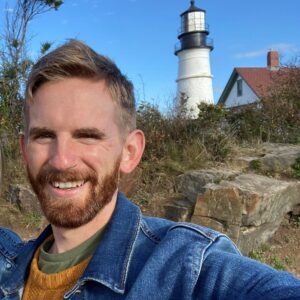 Tyler Mark Nelson
Tyler Mark Nelson
Tyler Mark Nelson is a Program Consultant at The BTS Center, where he contributes his training in ecotheology and lifelong practice of nature mysticism to the Center’s programming. With a strong commitment to ecumenical Christianity and the value of interfaith collaboration, he aims to incorporate themes of prophetic imagination, ecological contemplation, and environmental justice into public dialogue.
Now entering his third year of the Master of Divinity (MDiv) degree at Yale Divinity School, Tyler writes often about creatureliness, multispecies flourishing, climate justice, and social critiques of neoliberal capitalism. He graduated from Whitworth University with a B.A. in Theology.
During his prior career in horticulture, Tyler worked with people and plants through roles in human resources, operations management, and organic lavender farming. Tyler and his wife enjoy hiking, gardening, and cooking with their community in New Haven, Connecticut.
Meet our June Conversation Partner
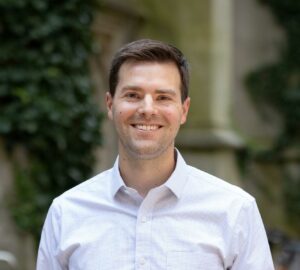 Ryan Darr
Ryan Darr
Ryan Darr is a Postdoctoral Associate at the Yale Institute of Sacred Music. There he leads Yale’s new interdisciplinary Religion, Ecology, and Expressive Culture initiative and teaches courses, including “Eco-Futures: Theology, Ethics, Imagination.” Previously, he was a Postdoctoral Research Associate in the Princeton University Center for Human Values. Ryan is a religious ethicist currently working on a book that draws from theology, philosophy, and literature to address ethical issues surrounding the emerging mass extinction event. He holds a Ph.D. in Religious Studies from Yale University.
Meet our July Conversation Partner
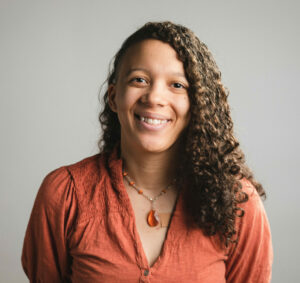
Maya Williams, MSW, MFA
Maya Williams (ey/they/she) is a Black multiracial nonbinary suicide survivor who is currently the seventh poet laureate of Portland, Maine. Eir debut collection, Judas & Suicide, is out now via Game Over Books. They were one of three artists of color selected to represent Maine in The Kennedy Center’s Arts Across America series in 2020 and were listed as one of The Advocate’s Champions of Pride in 2022.
Meet our August Conversation Partner
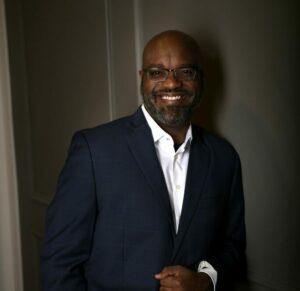 Derrick Weston
Derrick Weston
Derrick Weston is a writer, filmmaker, podcaster, speaker, and educator whose most recent work has focused on the intersection of food and faith. He is the co-host of the Food and Faith podcast and producer of Spoon, Spade, and Soul, a podcast highlighting food and land-based ministries in the Episcopal church. Additionally, he is the producer of the short film series "A Wilderness Like Eden" highlighting the work of churches engaged in food justice work. After two decades of being a pastor and community organizer, Derrick is a strong believer in the potential of local congregations to enact change in their communities. Derrick received his B.A. in film studies from the University of Pittsburgh and his Masters of Divinity from San Francisco Theological Seminary. He also has a certification in health ministry from Wesleyan Theological Seminary and was a part of the Re:Generate fellowship on food, faith, and ecology through Wake Forest Divinity School. Derrick is the co-author of the book The Just Kitchen: Invitations to Sustainability, Cooking, Connection, and Celebration and has written numerous articles for several publications. He and his wife Shannon have four children and live outside of Baltimore, Maryland.

